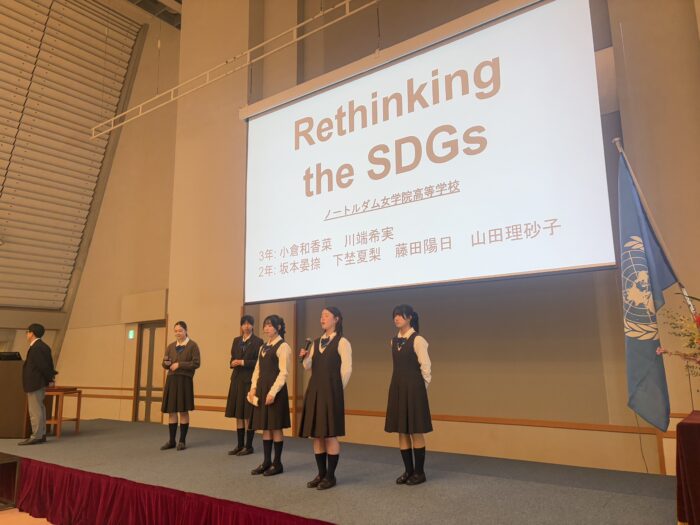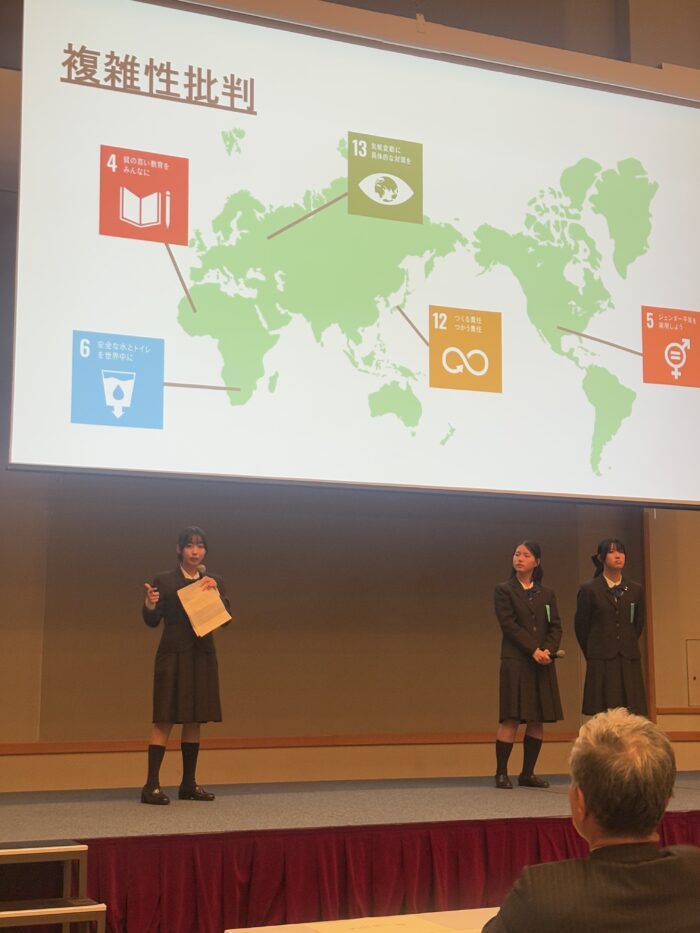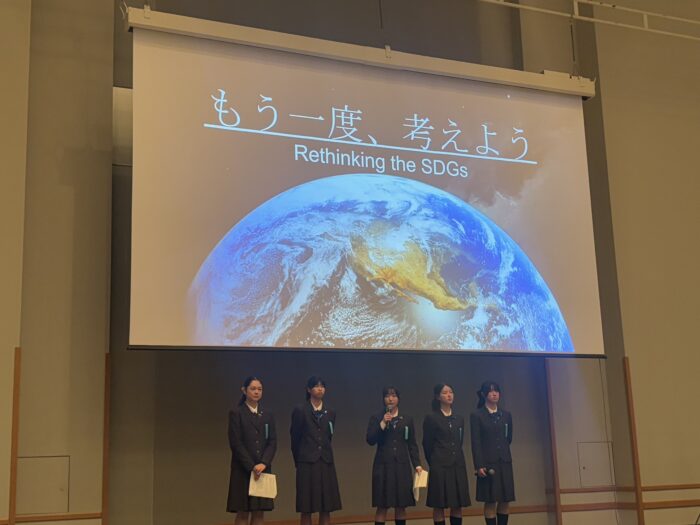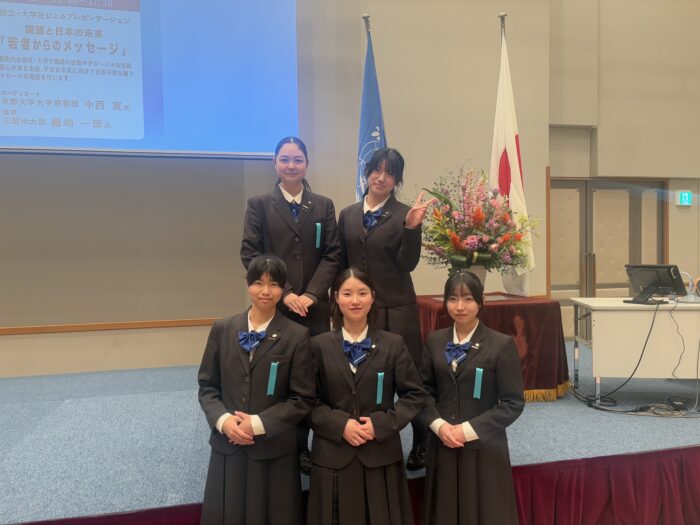日本国際連合協会京都本部より、11月8日(木)に開催された国連創設80周年記念・ICC Kyoto開館60周年プレイベントへの参加をご招待いただき、高校2年生、3年生のグローバル英語コースの生徒がプレゼンテーションを行いました。
日頃から社会課題と向き合い、英語でのディベートなどにも取り組んでいるグローバル英語コースの生徒たちですが、このような大きなイベントに参加する機会をいただき、刺激的で学びの多い機会になったようです。
担当の先生からの報告を原文そのままでご紹介します。

We were invited by the UN Kyoto support organization to participate in this prestigious event on November 8th. The keynote speaker was retired Ambassador Fujisaki. He is an amazing person who has personally met every U.S. president since Jimmy Carter. He talked about the future of international relations and Japan’s role in the changing world. Other participating high schools and universities all presented on various international or developmental topics. All the presentations were at a very high level; the students were asked probing questions by the event coordinator, Professor Nakanishi of Kyodai University. After the main event, there was a reception which the students greatly enjoyed, as they were able to socialize and network with the adult speakers as well as their peers. All in all the event was a tremendous success, and the Notre Dame Global students found it a very motivating and educational experience.

Our own presentation got very good reviews from the organizers as well as the students’ peers. The students decided on a very challenging topic: to actually critique, at a deep level, the SDGs, the UN’s 17 Sustainable Development Goals. Almost all presentations at this kind of event assume that the SDGs are basically good, but our students looked deeper and found some serious weaknesses and flaws in the Goals. And they politely but frankly described those flaws. This was the first way our presentation was different from the other schools’. Secondly, the students were not content with the standard, “get up and give information” style of presenting. They wanted something different, something more dramatic and exciting. So they embedded short dialogues and mini-debates into the core structure of the presentation. This was the aspect of their presentation that other schools found most compelling. Several other teams told us that they had been inspired by our performance to try something similar in the future.

But the road to that successful presentation was a long and difficult one. The students had to come up with the deep critiques first, which was no easy task. These are ideas like, “17 goals is too many,” or “Having the same goals for every nation is not the best way; more flexibility is needed,” or “Economic growth and sustainability are inherently contradictory.” Then, long hours of discussion and debated were needed for the students to fully process the critiques. Finally, they had to decide how to present these complex and interrelated ideas so that the audience would understand. The whole process took several months of tough but enjoyable weekly meetings.
In the end, it was all worth it. The students learned that they were capable of understanding the big issues and challenges that the whole world is currently confronting. Not only could they understand them, they could participate in meaningful debate about what we should do about them. This meant exploring the worlds of politics, economics, and society at a far deeper level than they had imagined possible. The intellectual, creative and communicative skills our ND Global students acquired from this experience will stay with them forever.

